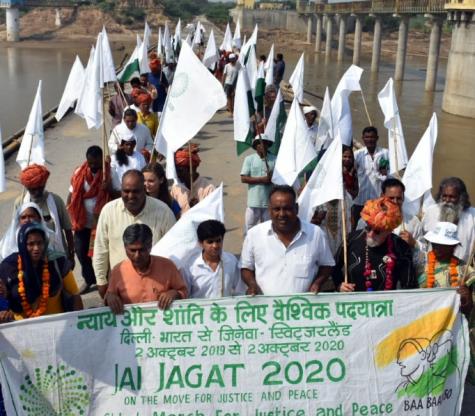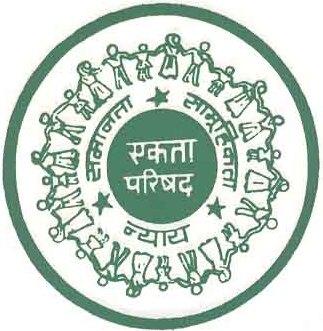Jill Carr-Harris (India & Canada)

➡️ JILL CARR-HARRIS – Peace, Nonviolence & Social Justice
Dividing her time between Toronto and India, Jill has dedicated her life to social change, grassroots activism, and peace advocacy. Her work focuses on community & women's empowerment, sustainable development, and rural economy & self-determination.
With more than 40 years of experience in India, Jill has worked as a researcher/trainer/activist in civil society and social movements, and has been aligned with Gandhi's nonviolence. Over time she has fostered south-south cooperation, and pursued nonviolent change locally and globally.
Jump straight to our resources on ➡️ Jill Carr-Harris
Jill's Career
Jill's profound dedication to peace began from an early age. She earned her PhD from the University of Toronto with a focus on nonviolent leadership. Her formation started with her work at the United Nations Non-Governmental Liaison Service (UN NGLS) and took her to India for the first time. This set her mission for promoting and developing for constructive relations between the international community and civil society organisations.
Jill also worked to support marginalised communities in the Philippines, Bangladesh, Nepal, and India. This provided her with hands-on experience in working on poverty reduction, environment, land reform, gender equality, and in formulating alternative development policies.
Jill also began to understand the resource conflicts of nature-dependent communities on land, forests, and water and how to ensure the quality of life, especially for women.
As Co-Lead of the International Gandhi Institute for Nonviolence and Peace (IGINP), Jill hast helped to catalyze various peace initiatives including the Peacebuilders' Forum India, the Nonviolent Economy Network, and the Jai Jagat campaign.
Her work is deeply inspired by the Gandhian philosophy and practice of nonviolence. Jill's mission is to catalyze a shift towards inclusive governance, dismantle systematic inequalities, promote sustainable living, and nurture a harmonious coexistence between communities, cultures, religions, countries and regions.

Ekta Parishad
Alongside her partner P.V. Rajagopal, Jill has spent 40 years in India facilitating support for marginalized communities with India's largest nonviolent social movement for the landless poor.
Ekta Parishad actively works across 12,000 villages in eight states of India and has helped secure land rights for nearly 500,000 families. The organisation is based on Gandhian values and promotes nonviolence and dialogue as a means to build a peaceful and just society. Jill has contributed in increasing the women's participation and leadership in Ekta Parishad.
In 2007, 25,000 landless Indians marched to Delhi to negotiate land rights. It culminated in the Forest Rights Act, which guarantees land to more than 2 million Indigenous families across India. It also led to positive amendments to the Land Acquisition Act and the introduction of new provisions.
In 2012, Ekta Parishad organised a 300km march from Gwalior to Delhi. More than 100,000 landless people joined in to demand their land rights. It resulted in a land reform agenda adopted by the Indian Government.
Ekta Parishad has since expanded its network into Asia, North America, and Europe. Its international reach has been extended through the Jai Jagat 2020 campaign.

Jai Jagat
Jill was the international Lead of Jai Jagat 2020 campaign. Jai Jagat International (or 'universal uplift' or 'progress for all') is a global peace campaign that brings together various groups and movements based on the principles of nonviolence. The movement stretches across the world to address the Sustainable Development Goals (SDGs) using a bottom-up approach to achieve positive change.
The Jai Jagat March began in New Delhi in October 2019 and was to end in Geneva in September 2020. It consisted of 50 participants from 12 different countries, and thousands more became involved. Unfortunately, the march was forced to stop in Armenia due to the onset of COVID-19. Several European members were able to complete the march to Geneva and take the memorandum to the United Nation's Director General. The march was inspired by Mahatma Gandhi's Salt Satyagraha in 1930.
The four pillars of Jai Jagat include:
-
Eradicating poverty
-
Ending social discrimination
-
Mitigating the impacts of the climate crisis
-
Resolving conflict and war
Jill's work embodies the power of collective action to bring people together around meaningful change. Through her leadership, advocacy and teachings, she continues to inspire people around the world to contribute to building a more equitable and nonviolent society for everyone.
Author: Rachael Mellor 26.06.25, Updated by Jill Carr-Harris on 10.07.25, licensed under CC BY-SA 4.0
For further reading on Jill Carr-Harris see below ⬇️
- Project Save the World - great videos with interviews on crucial issues475514
- Ekta Parishad - India's largest nonviolent movement for landless and homeless people 475526
- Project Save the World - Profile475523
- YouTube Search475534
- LinkedIn475515
- Facebook475581
- Instagram475583
- X - not used475582
- Jai Jagat 2020475518
- Jai Jagat 2020-2030475525
- Jai Jagat 2020-2030 Profile475524
- Rajagopal P. V. - Wikipedia475516
- Jai Jagat 2020 - Wikipedia475517
- Ektaparishad - YouTube478398
- ContactOut475519
- Trancivic International - Profile475533
- Home for Humanity475521
- Home for Humanity - Profile475588
- International Gandhian Institute for Nonviolence and Peace - IGINP Canada475608
- Video: Part 2 Interview with Dr. Jill Carr-Harris | A Gandhian Activist from Canada 4/25475584
- Video: “How to Build a Non Violent Economy” - with Jill Carr-Harris, live from the One Home in India 1/25475520
- A Nonviolent March through Nova Scotia, Canada - Voice of Women for Peace 10/24475537
- Video: Dr. Jill Carr-Harris: Nonviolent Social Action - Science for Peace 12/23475541
- Video: 54th Gandhi Jayanti Special: Interview with Jill Carr-Harris 10/23475544
- Video: Living Gandhians - Jill Carr Harris - Rajiv Gandhi Foundation 11/22475522
- Video: Jill Carr-Harris | Speaking Our Peace | Episode 11 - IGINP Canada 5/22475607
- Video: Ahimsa Conversation # 87 Jill Carr-Harris 10/21475542
- Canadian Activist Empowers India’s Indigenous Women to Fight COVID-19 - 6/21475587
- Video: The Meal Intro- By Jill Carr-Harris and Rajagopal PV 9/20 - Jagat 2020475586
- Video: Message of Peace | Jill Carr-Harris | Jai Jagat 2020 1/20475543
- Portrait of a Peace Activist: Excerpt from my interview with Jill Carr-Harris - Medium 9/19475585
- Toronto Pearson International Airport > Airlines and destinations475531
- Google Scholar475535
- Google Images475536
- Currency Converter475532
- Wikitravel - Toronto475529
- BBC Weather - Toronto475530
- Time & Date - Toronto, Canada475528
- Time & Date - Chennai, Tamil Nadu475527
- Mahatma Gandhi (India)
- NONVIOLENCE
- Sarvodaya Movement (Gandhi)
- JAI JAGAT 2020 - March from Dehli, India - 2 Oct 2019 to Geneva, CH - 2 Oct 2020
- JAI JAGAT : Oct 2 2019 (Delhi) - Oct 2 2020 (Geneva)
- Bhoodan Movement (Vinoba)
- Ahimsa (nonviolence)
- Satyagraha (power of goodness, more than ahimsa)
- MINISTRY of Peace
- Development & Aid
- Gandhigram Rural Institute
- Peace
- WOMEN & Development
- Sustainable Development Goals (SDGs) / 2030 Agenda
- Sustainability
- Alternative Economy
- Landless Movement
- Nuclear Weapons
- Climate Crisis
- Conflict Regions
- Civil Society
- Democracy & Governance Indices
- INDIA - Politics
- India - HR
- India - Climate
- Military
- Homeless People
- Novel Coronavirus Guide
- Vinoba Bhave (India)
- Metta Spencer (Canada)